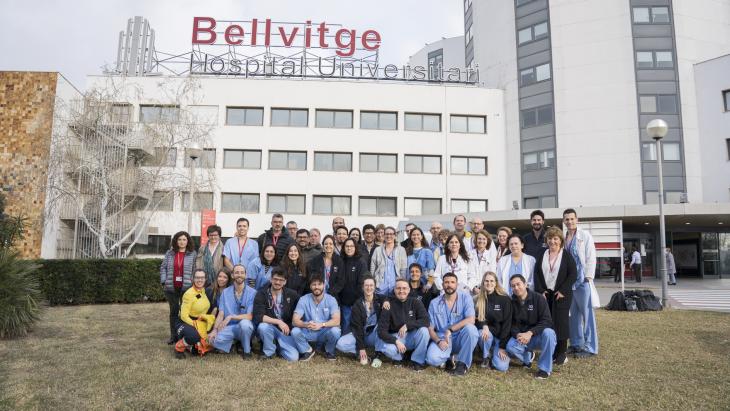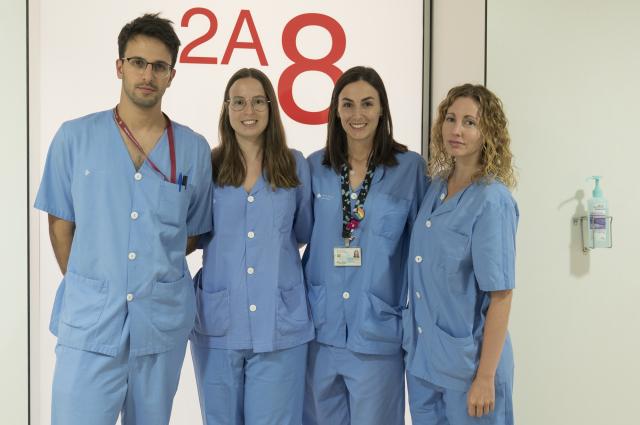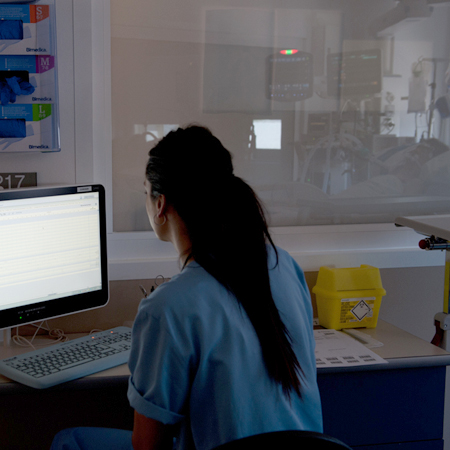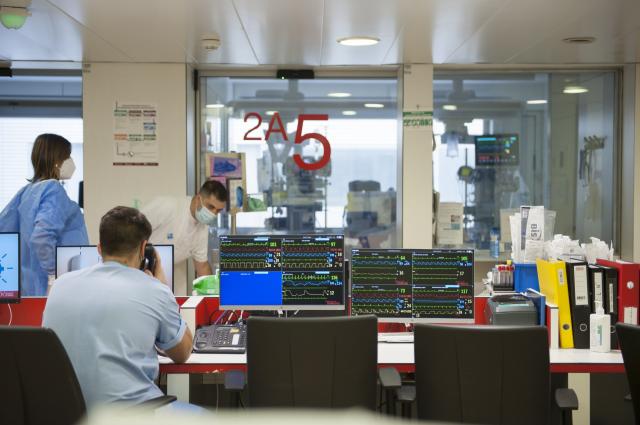
Introduction
The goal of the Intensive Medicine Department is the diagnosis and treatment of critical patients. It also promotes and designs highly complex, innovative programmes, such as extracorporeal cardiopulmonary support (veno-venous ECPS) or the post-operative care of transplant patients.
The Department is involved in research and education at graduate, post-graduate and ongoing training level. It consists of three units: one dealing in care for patients recovering from Heart Surgery and two multi-purpose units.
All its activities are aimed at meeting the healthcare needs and expectations of the population, with criteria of equity, maximum efficiency and quality, thanks to the active commitment of its entire team of professionals.
Related news

Virtual reality reduces ICU patients' pain and anxiety during painful procedures
Team
Head of Service
Head of Section
Head of Nursing Area
Specialist Doctors
Relevant aspects

Services and procedures Care. Monitoring and treatment:
Care. Monitoring and treatment:
- Basic and advanced cardiopulmonary resuscitation (CPR) and advanced post-CPR assistance.
- Transfer capacity for advanced care for post-CPR.
- Advanced heart monitoring.
- Mechanical extracorporeal circulatory care (uni/biventricular, central ECPS).
- Mechanical extracorporeal pulmonary care (peripheral ECPS).
- Synchronised electrical cardioversion.
- Fibrinolytic treatment in ischemic cardiomyopathy.
- Computerised monitoring of heart rate disorders.
- Control and treatment of severe arrhythmia with haemodynamic instability.
- Temporary pacemaker implants.
- Venous and arterial catheterisation and undefined line maintenance.
- Pharmacological haemodynamic support.
- Monitoring of the gas exchange function.
- Establishing and maintenance of the artificial airway.
- Transient-type percutaneous tracheostomies.
- Short-term and prolonged artificial ventilatory support with and without sedo-relaxation support.
- High flow oxygen therapy.
- Therapeutic fibrobronchoscopy.
- Advanced monitoring of ventilation mechanics.
- Invasive and non-invasive ventilatory support on and off the IMD premises.
- Implantation and maintenance of pleural, pericardial and abdominal drainage.
- Establishing, control and maintenance of specialist enteral nutritional support.
- Control and maintenance of complex enteral nutritional support.
- Care and control of acid-base and hydroelectric balance decompensation.
- Continuous extrarenal purification techniques.
- Immediate advanced multiple trauma care.
- Prolonged high-risk multiple trauma maintenance. Initial care for neurotrauma patients.
- Maintenance of neurotrauma patients for prolonged periods and with advanced monitoring.
- Monitoring of intracranial pressure, transcranial dopplier and other neuromonitoring systems.
- Post-neurosurgery care. Resuscitation and treatment of haemorrhagic shock due to upper gastrointestinal bleeding (Sengstaken)
- Advanced care of multisystem dysfunction.
- Advanced care of multiple organ failure.
- Monitoring and care for patients affected by acute coronary syndrome, with or without severe circulatory failure.
- Care and monitoring of post-heart surgery patients.
- Resuscitation and care of post-surgery patients at risk from other specialities.
- Maintenance of patients with criteria of brain death.
- Maintenance of the potential organ donor without criteria of brain death.
- Establishing of Maastricht type III donations.
Position of the department in relation to other hospital areas:
- Access to advanced assisted inter-centre transport.
- Care and control of patients requiring care, regardless of their pathology, that exceeds that provided by the conventional hospitalisation units of the centre, including resuscitation rooms,
- Emergency observation rooms, and intermediate units, in relation to equipment and available personnel.
- Cooperation, care and control of patients requiring care that exceeds the technological capacity, knowledge or provisions of other critical care units of the hospital or of the area of reference.
- Care for non-critical post-Heart Surgery patients in hospitalisation ward (intermediate)
- Clinical support for other professionals in conventional hospitalisation units to stabilise and/or screen patients prior to their critical situation.
- Prior assessment and decision to admit/not admit.
- Cooperation with care and clinical support in CPR situations in different diagnostics and hospitalisation areas.
- Assisted intra-hospital transport.
Docència
Location
Main Building at Bellvitge University Hospital
c/ Feixa Llarga, sn.
08907 L’Hospitalet de Llobregat. Barcelona
Floor 1, 2 and 3
Telephone number 93 260 76 46

